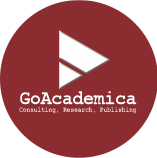ANALISIS SWOT PROGRAM PEMBERDAYAAN EKONOMI UMAT PADA SENTRA BUDI DAYA JAMUR TIRAM
DOI:
https://doi.org/10.15575/jim.v4i1.23729Keywords:
SWOT Analysis, Economic Empowerment, Oyster Mushroom Cultivation.Abstract
The community economic empowerment program at the oyster mushroom cultivation center in Village X which is run by the UM Amil Zakat Institution (LAZ) is intended to improve the economy of the target community. In the process, an economic empowerment program requires an analysis of the organization and its environment so that future program strategies can be identified. Aims to describe and analyze the strengths, weaknesses, opportunities and threats in a community economic empowerment program, this study uses qualitative methods, with a descriptive research type. Information regarding the strengths, weaknesses, opportunities and threats of program management was taken through literature studies related to LAZ, economic empowerment, and swot analysis; the observation was carried out at the oyster mushroom cultivation center; as well as in-depth interviews involving members, administrators, center managers, LAZ UM, residents around the center and local government. The results of the study indicate that there are several strengths, including the large quantity of human resources, support from stakeholders and members. The weaknesses of this program are communication problems between the institution and the community, and the lack of a 'sense of belonging' to center members. In fact, there are various opportunities such as oyster mushroom product diversification, opportunities to establish new partners, and the creation of other activities that can be developed through oyster mushroom cultivation centers. In addition, the existence of this program is inseparable from threats from outside the center, namely the existence of a group of people who are considered to want to destroy the center's business and reduce consumers.
References
Adams, R. (1990). Self-Help, Social Work and Empowerment. London: Macmilan Education Ltd.
Al Ridho, Y., Puspitaningrum, D. A., & Utami, H. H. (2020). Micro and Small Entreprise (Mse) Development by Using SWOT and Analytical Hierarcy Process Methods Approach (AHP) (Study Case in Tarlac Agricultural University (Tau) Mushroom Production, Malacamp, Tarlac, Phillipines).
Buchanan, D.A. & Huczynski, A.A. (2019) Organizational Behaviour. United Kingdom: Pearson.
Barney, J. B. (1995). Looking Inside for Competitive Advantage. Academy of Management Perspectives, 9(4), 49-61.
Citraresmi, A. D. P., Haryati, N., & Permanasari, P. N. (2021). Identifying Elements of Mushroom Business Development in Malang City with a Canvas Model Approach. Advances in Food Science, Sustainable Agriculture and Agroindustrial Engineering (AFSSAAE), 4(1), 39-47.
Datta, P., & Das, S. (2021). Model-Based Strategic Planning for Strengthening Mushroom Entrepreneurship: Insights from a Sub-Himalayan Region of West Bengal, India. GeoJournal, 86(1), 145-158.
Gürel, E., & Tat, M. (2017). Swot Analysis: A Theoretical Review. Journal of International Social Research, 10(51).
Hill, T., & Westbrook, R. (1997). SWOT Analysis: It's Time for a Product Recall. Long Range Planning, 30(1), 46-52.
Ife, J. (2013). Community Development in an Uncertain World. Cambridge University Press.
Islamic Development Bank (2021) The Economic Empowerment Approach (EEA) A New Paradigm for Development. Jeddah: Islamic Development Bank
Karami, S., & Agahi, H. (2018). SWOT Analysis of Strategies for Agricultural Entrepreneurs Empowerment. International Journal of Agricultural Management and Development, 8(2), 307-320.
Machdum, S. V. (2013). Upaya Peneguhan Eksistensi Lembaga Amil Zakat sebagai Salah Satu Bentuk Faith Based Organization di Indonesia. Empati: Jurnal Ilmu Kesejahteraan Sosial, 2(1), 17-34.
Miller, B. (2008). Management: Towerds High Standards in Community Development. Great Britain: Community Development Foundation
Mina, J. C., Campos Jr, R. B., Santiago, J. M., Navarro, E. C., & Subia, G. S. (2020). Mushroom Production as a Source of Livelihood for the Depressed Barangay in Nueva Ecija, Philippines: A Strategic Plan Using Tows Matrix. International Journal of Disaster Recovery and Business Continuity, 11(3), 3113-3121.
Norkholes, A., Sasmi, M., Susanto, H. (2021). Analisis Strategi Pengembangan Usaha Budidaya Jamur Tiram di Kelurahan Beringin Jaya Kecamatan Sentajo Raya. Green Swarnadwipa: Jurnal Pengembangan Ilmu Pertanian, 10(1), 1-20.
O'Connor, M. K., & Netting, F. E. (2009). Organization Practice: A Guide to Understanding Human Service Organizations. New Jersey: John Wiley & Sons.
OECD DAC Network on Gender Equality (GENDERNET). (April 2011). Women’s Economic Empowerment. Issues Paper.
Payne, M., & Reith-Hall, E. (Eds.). (2019). The Routledge Handbook of Social Work Theory. New York: Routledge.
Payne, M. (2020). Modern Social Work Theory. 5th ed. London: Bloomsbury Publishing.
Quincy, R., Lu, S., & Huang, C. C. (2012). SWOT Analysis: Raising Capacity of Your Organization. Rutgers School of Social Work.
Rachmawati, R., Wisnujati, N. S., & Hermawati, D. T. (2022). Strategi Pengembangan Usaha Jamur Tiram Putih di Desa Wadungasih Kecamatan Buduran Kabupaten Sidoarjo. Jurnal Ilmiah Sosio Agribis, 22(1), 9-16.
Rappaport, J. (1995). Empowerment Meets Narrative: Listening to Stories and Creating Settings. American Journal of Community Psychology, 23(5), 795-807.
Roseland, M. (2000). Sustainable Community Development: Integrating Environmental, Economic, and Social Objectives. Progress in Planning, 54(2), 73-132.
Saripudin, U., Djamil, F., & Rodoni, A. (2020). The Zakat, Infaq, and Alms Farmer Economic Empowerment Model. Library Philosophy and Practice (e-journal), 3566.
Siti, I., Yuni, S., & Bisma, A. (2018). Oyster Mushroom Cultivation as a Strategy of Community Empowerment in Improving Economic Growth and Distribution of Rural Areas in Indonesia. Russian Journal of Agricultural and Socio-Economic Sciences, 83(11), 327-332.
Syamsuri, S., Arif, S., & Roficoh, L. W. (2019, December). Empowering Economic Independence of Ummah Based on the Sustainability of Zakat. In Journal of International Conference Proceedings (JICP) (Vol. 2, No. 3, pp. 122-128).
Team FME (2013). SWOT Analysis, Strategy Skills. Available from eBook library: http://www. freemanagement-ebooks. com/dldebk-pdf/fme-swotanalysis. pdf.
Undang-Undang Republik Indonesia No. 6 tahun 2014 tentang Desa.
Downloads
Published
How to Cite
Issue
Section
Citation Check
License

This work is licensed under a Creative Commons Attribution-ShareAlike 4.0 International License.













